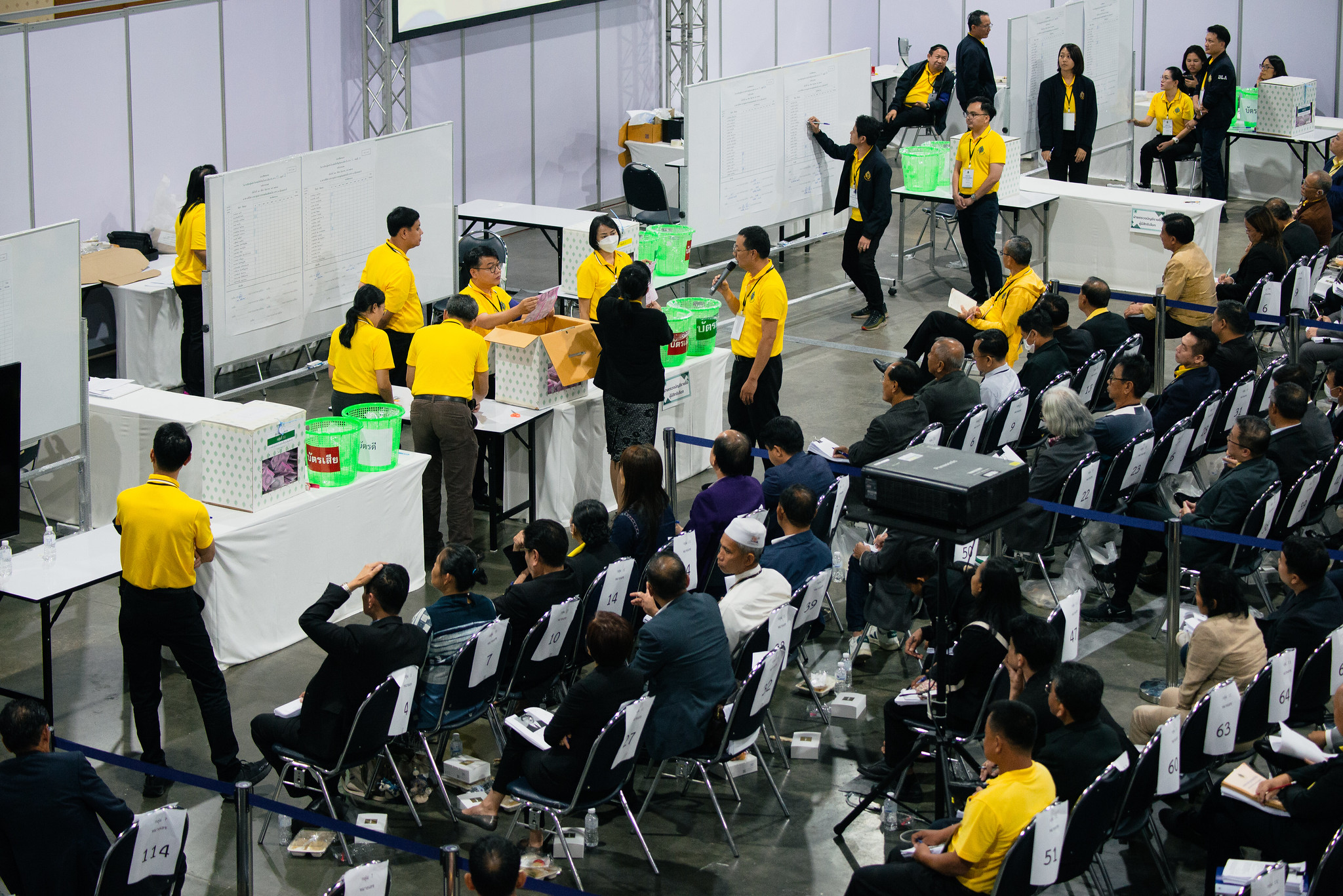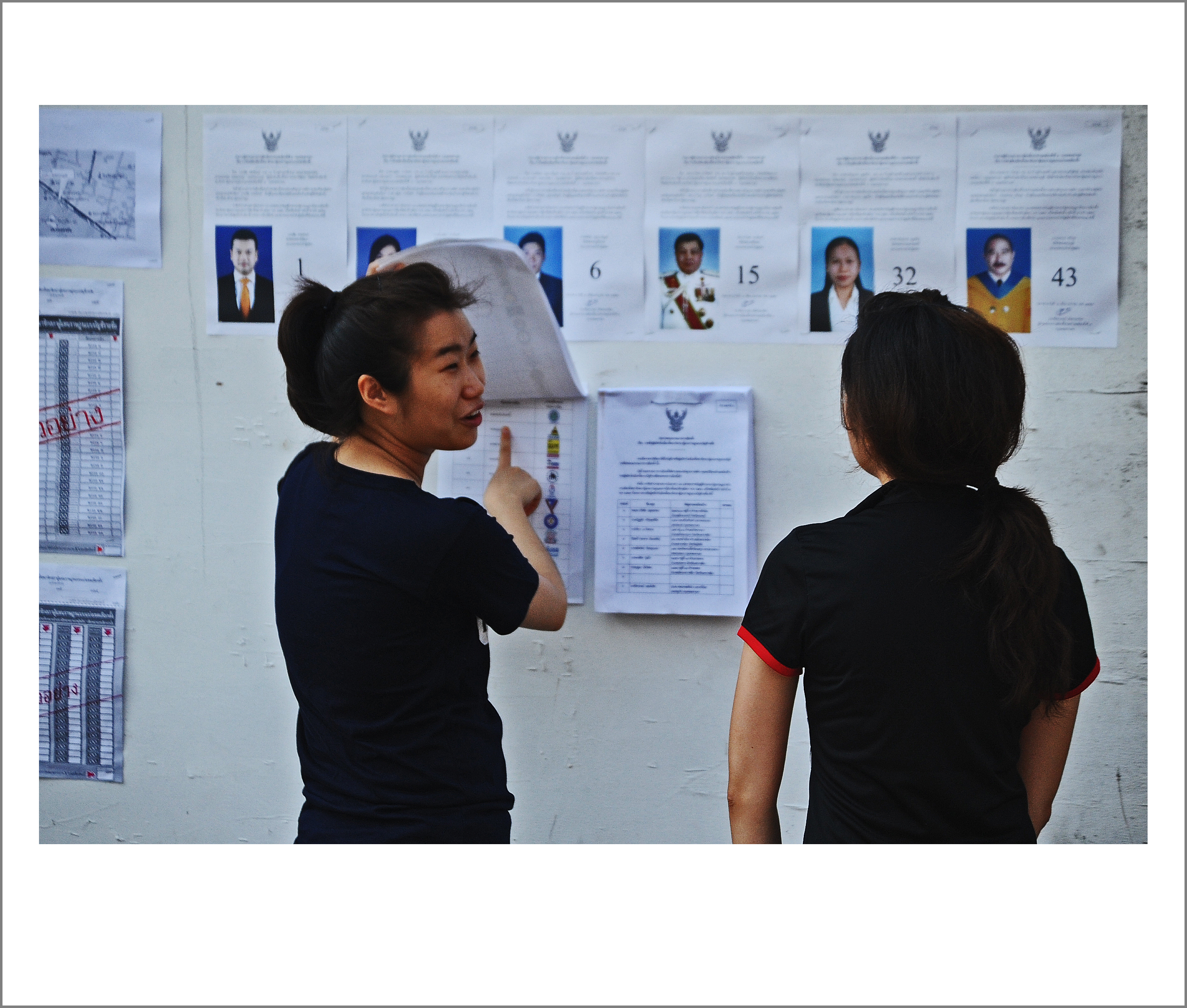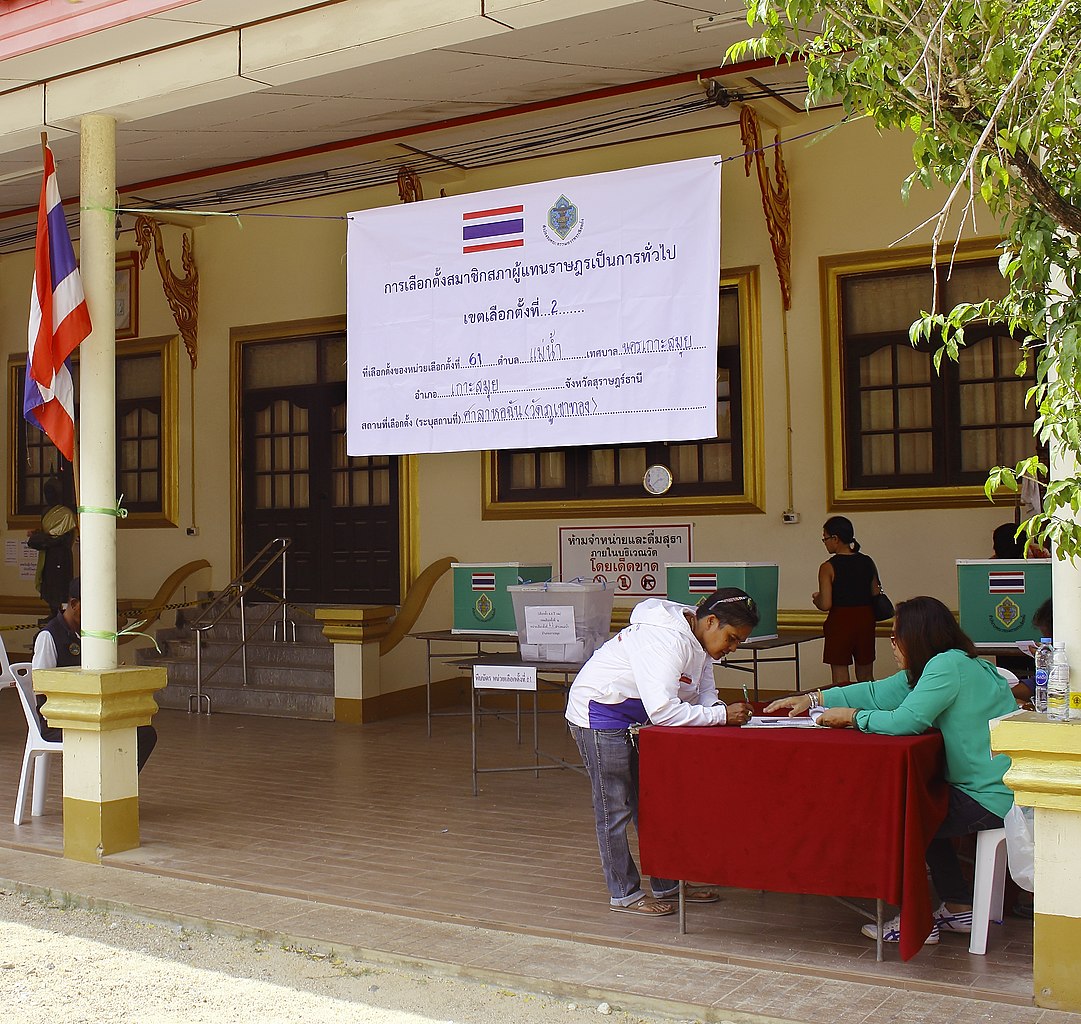
Thailand
Thailand exhibits low-range performance across two categories of the Global State of Democracy Framework: Rights and Rule of Law; it performs in the mid-range in Representation and Participation. It is among the bottom 25 per cent of countries in Freedom of Expression, Access to Justice and Predictable Enforcement, among other factors.. Over the last five years, Thailand has experienced declines in Freedom of Movement and Economic Equality, but advances in several factors of Representation and Freedom of Expression, largely due to openings preceding the 2023 election. It is home to Southeast Asia’s second largest economy, relying on diverse industries, including tourism, export-oriented manufacturing, and agricultural products.
Unlike its neighbours, Thailand was never directly colonized. It was ruled by an absolute monarchy until 1932, when a revolution resulted in a constitutional monarchy. Since then, the country has alternated between military and civilian rule, and the military, the economic elite and the monarchy remain closely interlinked. Over the past decade, significant developments include the 2014 military coup that ended a period of democratization (1992-2006) and the opening of political and civic space since 2018. Since 2014, Thailand had been under military rule, which exerted total control of the political process thanks to a tailor-made constitution designed to cement the armed forces’ grip on power. Protests in 2020-2021 demanded restraining the power of the military and, for the first time in modern Thailand, of the monarch. Military rule and the King’s support of the former remain the main obstacles for democratization. The 2023 election signaled a potential turning point, as opposition parties emerged victorious. However, conservative and military influences persist in shaping the political landscape, exemplified by the dissolution of the main opposition party in 2024. .
The dominant ethnic group is Thai (98 per cent), followed by Burmese (1 per cent) and other groups, including Chinese and Malay Muslim minorities. Chinese minorities play an influential role in business and politics. Separately, some Malay Muslims have influenced dynamics in the South, where separatist tensions exist. Yet, Thai nationalism and assimilation have – to a certain extent - diluted the differences amongst the various communities. In November 2024, Thailand approved a resolution to fast-track permanent residency and citizenship for approximately one million stateless persons, primarily from ethnic minorities and hill tribes. The country is largely Theravada Buddhist, except in the southern regions, where Sunni Islam is predominant. Throughout the twentieth century, the South experienced intermittent violence, with separatist groups challenging central authority. At the beginning of the 2000s, these tensions resurged as armed groups with more Salafist-oriented demands gained more power. The conflict remains unresolved, although attempts at negotiation have occurred in recent years.
Despite constitutional protections and advancements in gender equality within health, education and workforce participation, challenges remain in addressing gender-based violence, wage gaps and low female representation in politics. In June 2024, Thailand became the first country in Southeast Asia to legalize same-sex marriage.
Looking ahead, it will be important to watch Rights, especially as the country continues to grapple with restrictions on the freedom of expression related to the royal defamation law. Rule of Law and Representation will also need monitoring in line with ongoing efforts to amend the 2017 military-drafted constitution with a more democratic one – a process potentially requiring three referendums. Additionally, Free Political Parties will also need monitoring amid persistent efforts to undermine the opposition.
Last updated: June 2025
https://www.idea.int/democracytracker/
August 2025
Prime Minister Paetongtarn Shinawatra dismissed by Constitutional Court
On 29 August, Thailand’s Constitutional Court dismissed Prime Minister Paetongtarn Shinawatra after ruling that she had violated ethical standards in connection with a leaked phone call with former Cambodian Senate President Hun Sen. The decision makes her the fourth affiliated-member of the Shinawatra family to see their term cut short by either a military coup or court ruling. Shinawatra’s removal also reflects a broader trend in Thai politics, where Shinawatra-affiliated public and other reformist figures have been removed from office by conservative or military-aligned forces.
Update: On 9 September, the Supreme Court ordered former Prime Minister Thaksin Shinawatra (Paetongtarn’s father), to serve a one-year prison sentence for corruption and abuse of power stemming from his 2008 convictions, underscoring the ongoing political tensions surrounding the Shinawatra family.
Sources: International IDEA, The Associated Press, CNN, The Bangkok Post, The Diplomat
July 2025
Cross-border fighting over long-contested temples results in civilian casualties
Armed conflict broke out on the Cambodia-Thailand border on 24 July, killing at least 38 people (including at least 13 civilians), wounding over 200, and displacing at least 300,000 on both sides of the border. The violence broke out after civilians and soldiers from both Cambodia and Thailand engaged in minor altercations and clashes over temples in a long-contested border region. These clashes strained diplomatic tensions as well, and violence continued until acting Thai Prime Minister Phumtham Wechayachai and Cambodian Prime Minister Hun Manet agreed to an unconditional ceasefire on 28 July. No ceasefire violations have been independently confirmed since. The violence is the worst between the two countries since 40 soldiers and civilians died in armed clashes over the same contested temples and borders between 2011 and 2013.
Sources: Associated Press, The Diplomat, The Guardian, Human Rights Watch
Constitutional Court suspends Prime Minister Paetongtarn Shinawatra amid ethics probe

On 1 July, Thailand’s Constitutional Court suspended Prime Minister Paetongtarn Shinawatra from office due to her conduct revealed in a leaked phone call with former Cambodian Senate President Hun Sen aimed at diffusing ongoing border dispute with Cambodia. Critics highlighted her alleged deference toward Hun Sen, alongside her criticism of a Thai army commander. The petition, launched by 36 senators, accuses Paetongtarn of ‘violating the constitution and breaching ethical standards.’ As a result of the leak, the conservative Bhumjaithai Party withdrew from the government’s ruling coalition in June, leaving it with a slim majority. Moreover, the National Anti-Corruption Commission launched a separate investigation into the matter on 14 July–a ruling in which could lead to a lifetime ban from politics, with a ruling expected by December 2025. Paetongtarn was suspended from her prime ministerial duties until the Court reached a verdict in the ethics probe, but remained in cabinet. Deputy Prime Minister Phumtham Wechayachai assumed the role of acting prime minister.
Sources: The Bangkok Post, The Diplomat, Al Jazeera
February 2025
Thailand forcibly deports forty Uyghurs to China
On 27 February, Thai authorities deported at least 40 Uyghur detainees to China after having detained them for over a decade. The decision has been widely condemned by rights experts and the United Nations, citing concern that those forcibly returned face a high risk of torture, prolonged detention and ill-treatment by the Chinese government. The 40 Uyghurs were among a group of 300 Uyghurs apprehended by Thai authorities for illegal entry in 2014, after fleeing persecution and discrimination in China’s Xinjiang region. Many of those detained in 2014 were subsequently deported in 2015. The UNHCHR stated that it had repeatedly requested access to the detainees in Thailand and had received assurances that they would not be forcibly returned. Conversely, the Thai government maintains that the deportations were carried out in accordance with international standards and that Chinese authorities had assured them individuals would be properly treated.
Sources: Human Rights Watch, Bangkok Post, UN News, ICJ
Former opposition members face lifetime ban from politics

In February, the National Anti-Corruption Commission announced plans to indict 44 former Member of Parliaments (MPs) from the now-dissolved Move Forward Party (MFP) for sponsoring a bill in parliament to reform Thailand’s lese majesty law. Among them, 25 are now part of MFP’s successor, the People’s Party. If found guilty, they could face a lifetime ban from politics. The indictment comes after the Constitutional Court dissolved MFP in August 2024. The accused MPs maintain that their support for amending the lese majesty was legal, emphasizing that lawmakers have the authority to propose new laws. The commission will now question the 44 MPS before referring the case to the Supreme Court or public prosecutors.
Sources: Human Rights Watch, The diplomat, Bangkok Post, Thai PBS, International IDEA
January 2025
Government invests in transgender health
In January, Thailand’s Public Health Ministry allocated approximately THB 145 million (USD 4.3 million) to the National Health Security Office to provide health services, including hormone therapy, to around 200,000 transgender individuals. Deputy Government Spokesperson Anukool Pruksanusak stated that this initiative aligns with the government’s marriage equality policy and aims to reduce health disparities by providing free services. Previously, transgender individuals were required to pay for these services themselves, which health experts warned led to people using hormones without medical supervision.
Sources: Bangkok Post, Human Rights Watch, Thaiger
See all event reports for this country
Global ranking per category of democratic performance in 2024
Basic Information
Human Rights Treaties
Performance by category over the last 6 months
Blogs
Global State of Democracy Indices
Hover over the trend lines to see the exact data points across the years
Factors of Democratic Performance Over Time
Use the slider below to see how democratic performance has changed over time


